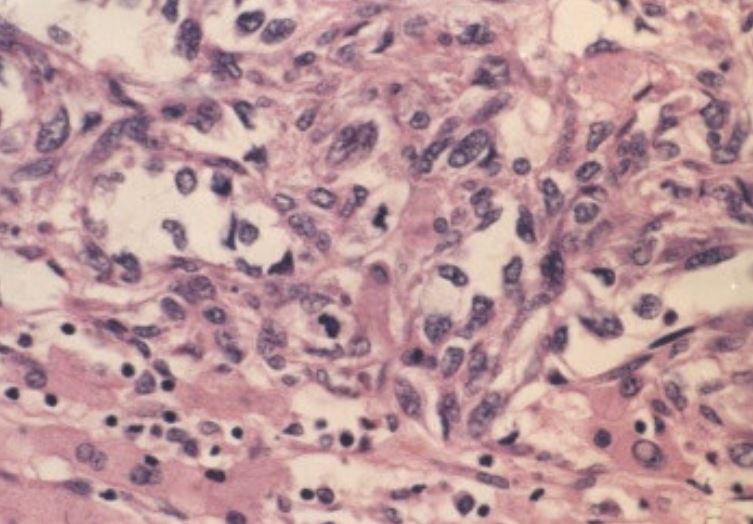Playlist
Show Playlist
Hide Playlist
Malignant Liver Tumors
-
Slides GD liver disease.pdf
-
Download Lecture Overview
00:01 Hepatocellular carcinoma (HCC) A specific tumor within the liver. 00:06 Anything that causes cirrhosis, any cause of cirrhosis, you're at risk for HCC. 00:13 So, alcohol, sure. 00:17 Non alcohol, yes. 00:18 Give me two major differentials of non-alcoholic issues. 00:23 Autoimmune or maybe perhaps NASH. 00:26 Continue... 00:27 What about autoimmune? What about Hemochromatosis? What about a whole holes of differentials that may result in cirrhosis. 00:35 Hepatitis C. 00:39 Imaging sufficient with background cirrhosis. 00:42 And that background cirrhosis means what to you? Where fibrosis kicking in, tell me the size of the liver versus the original size, shrunken. 00:52 Biopsy, not always useful. 00:54 Imaging is sometimes sufficient. 00:57 Here, with the Hepatocellular carcinoma, expect her to be increased in alpha-fetoprotein. 01:02 Metastasis to the lung, bone and brain. 01:07 So this is a primary Hepatocellular carcinoma that may have resulted, let's say, from cirrhosis and from the liver. 01:15 It might metastasis, go up to the lung, and then near the bone and near the brain. 01:20 Important areas of Metastasis. 01:22 The treatment. Obviously, resection. 01:25 Transplantation is high on that list. 01:28 You have chemo-embolization. 01:29 Maybe percutaneous, ablation, and we have sorafenib. 01:36 Metastasis. 01:38 Just like many the cancers we have discussed, at times the most common cancer of that particular organ would be Metastasis from a primary. 01:47 That is the topic for this section. 01:50 Most frequent site of metastasis is from the GI tract, limited role of the resection in case of Colorectal Cancer (CRC). 01:58 In Colorectal cancer, you need to make sure, you always check to see is to whether not it is then Metastasized.
About the Lecture
The lecture Malignant Liver Tumors by Carlo Raj, MD is from the course Liver Diseases: Basic Principles with Carlo Raj.
Included Quiz Questions
Which of the following tumor markers is characteristically increased in hepatocellular carcinoma?
- Alpha-fetoprotein
- Beta HCG
- CEA
- CA 19-9
- Inhibin
Which of the following is a FALSE statement regarding hepatocellular carcinoma?
- A biopsy is always the most useful diagnostic laboratory method.
- It most commonly metastasizes to the lung, bone, and brain.
- Cirrhosis increases its risk.
- Alpha-fetoprotein is commonly increased.
- Imaging is a good diagnostic modality to identify this disease in a background of cirrhosis.
Which of the following is NOT an effective treatment for hepatocellular carcinoma?
- Imatinib
- Sorafenib
- Liver resection
- Liver transplantation
- Transarterial chemoembolization
Customer reviews
5,0 of 5 stars
| 5 Stars |
|
5 |
| 4 Stars |
|
0 |
| 3 Stars |
|
0 |
| 2 Stars |
|
0 |
| 1 Star |
|
0 |




